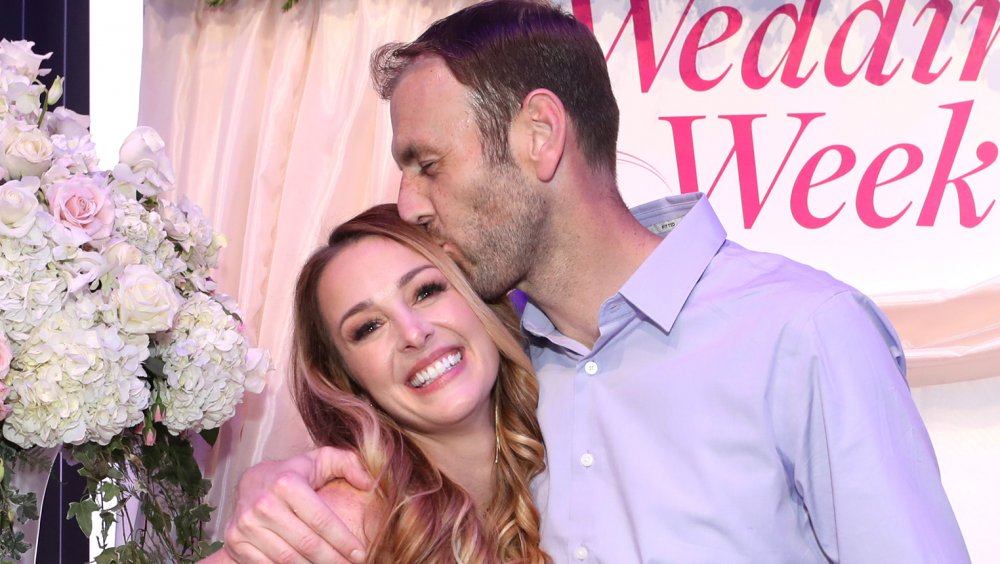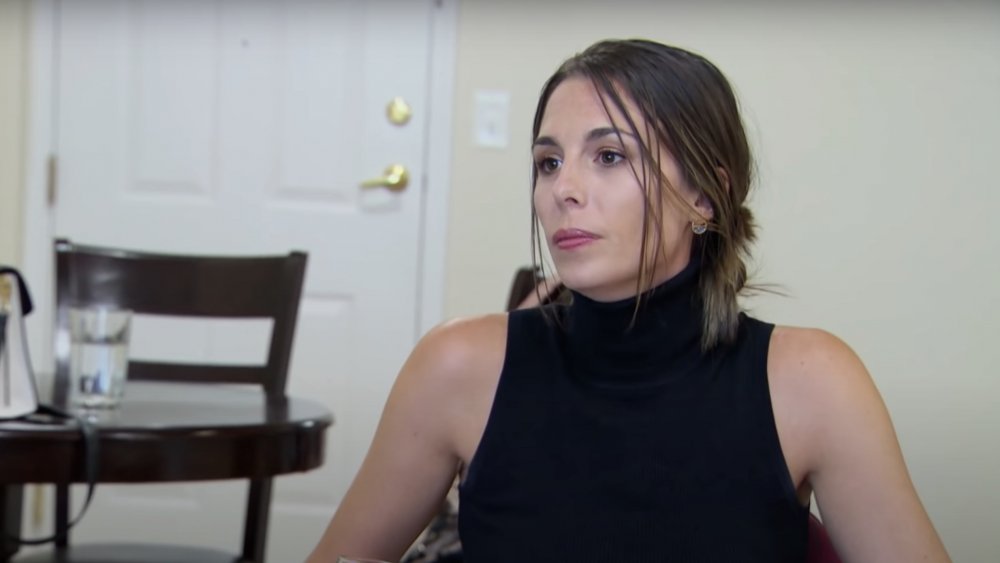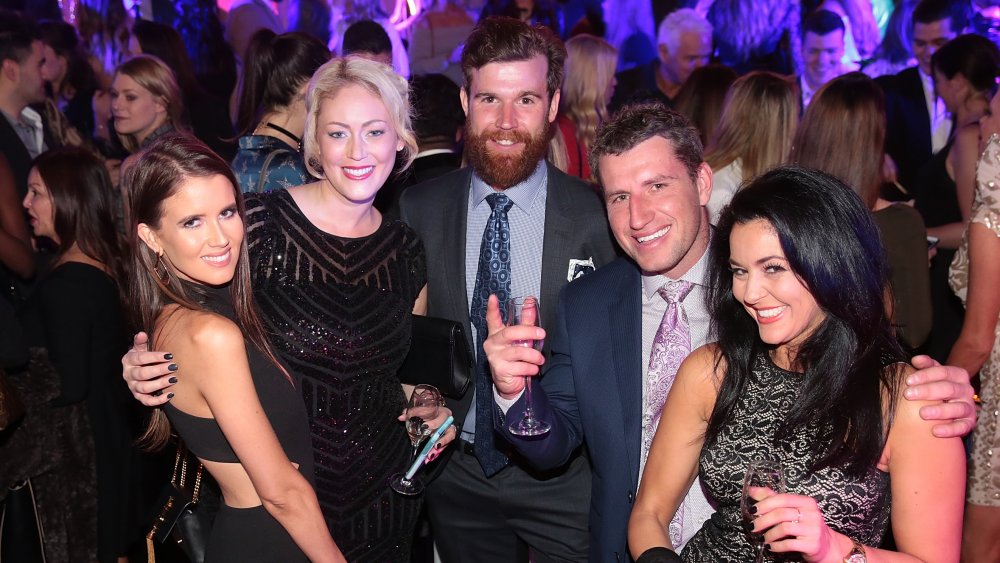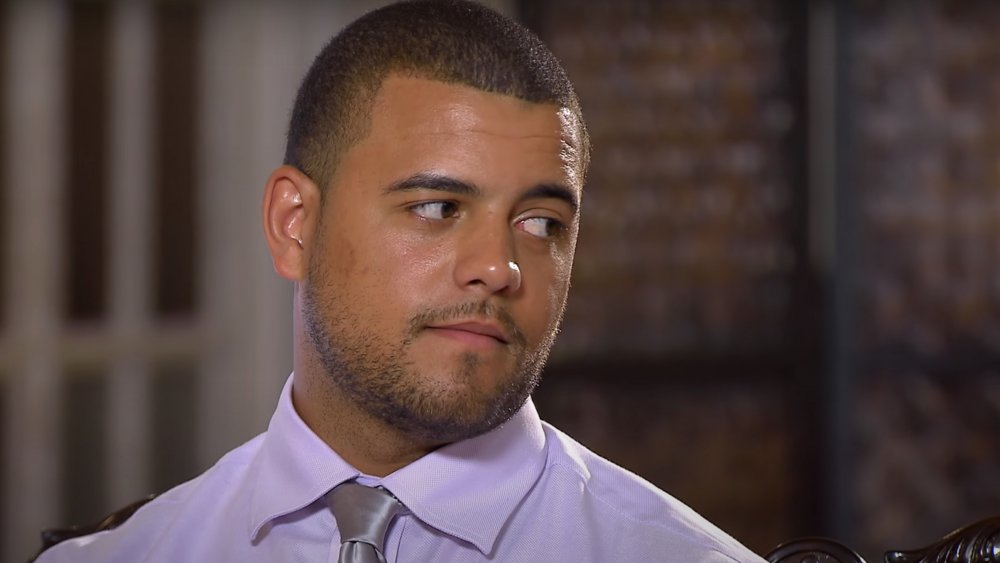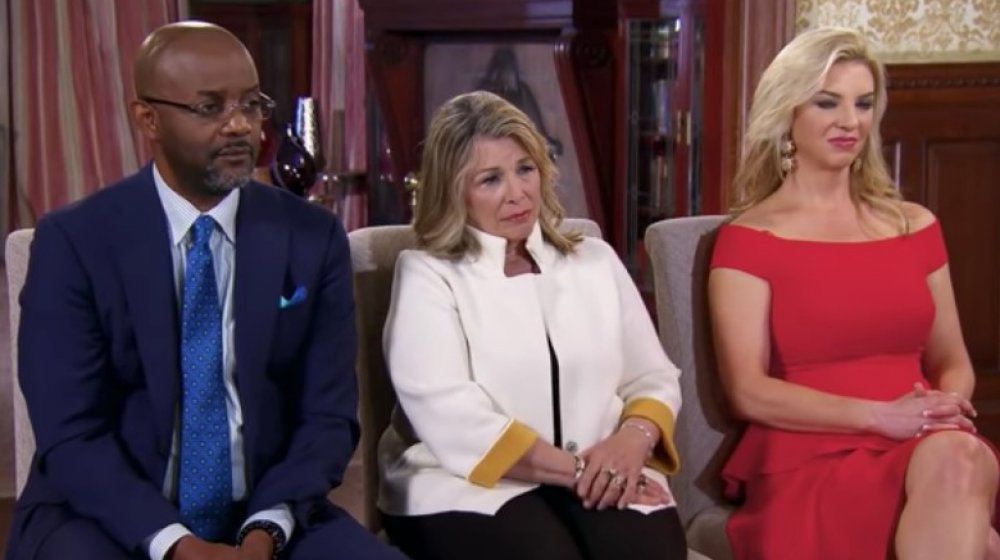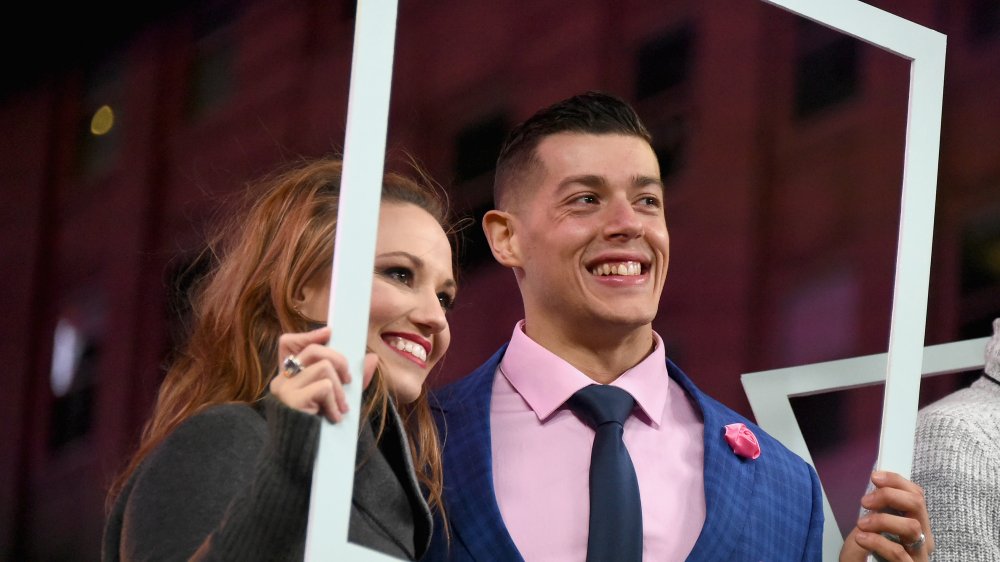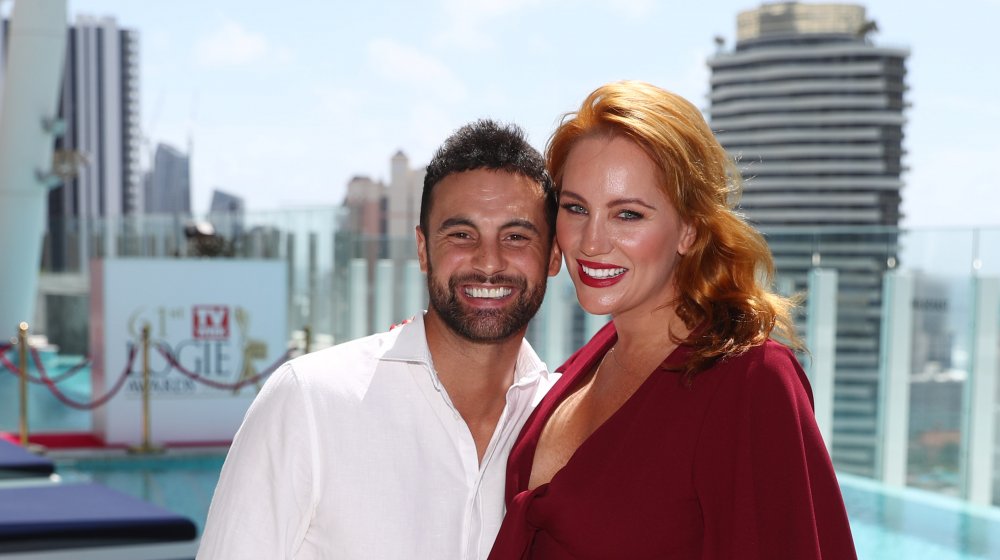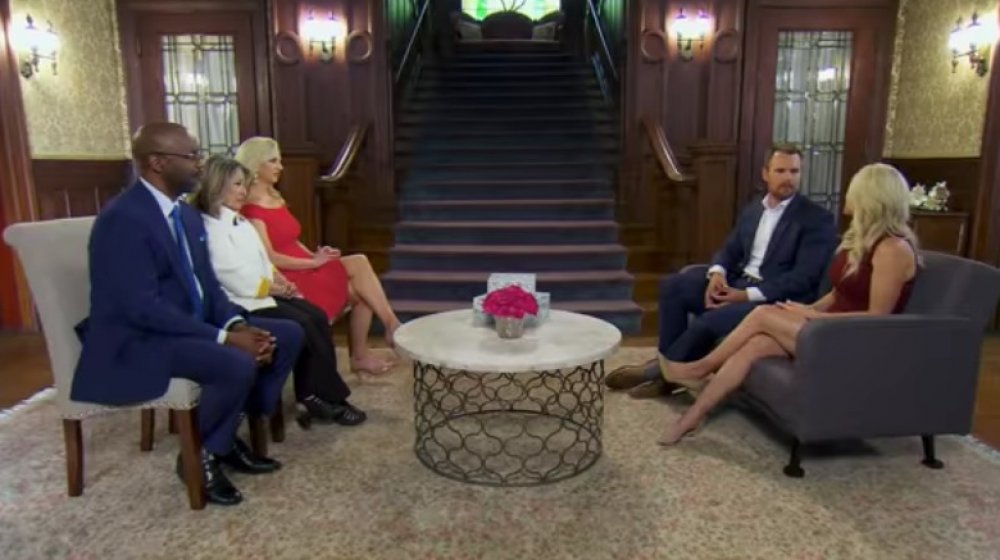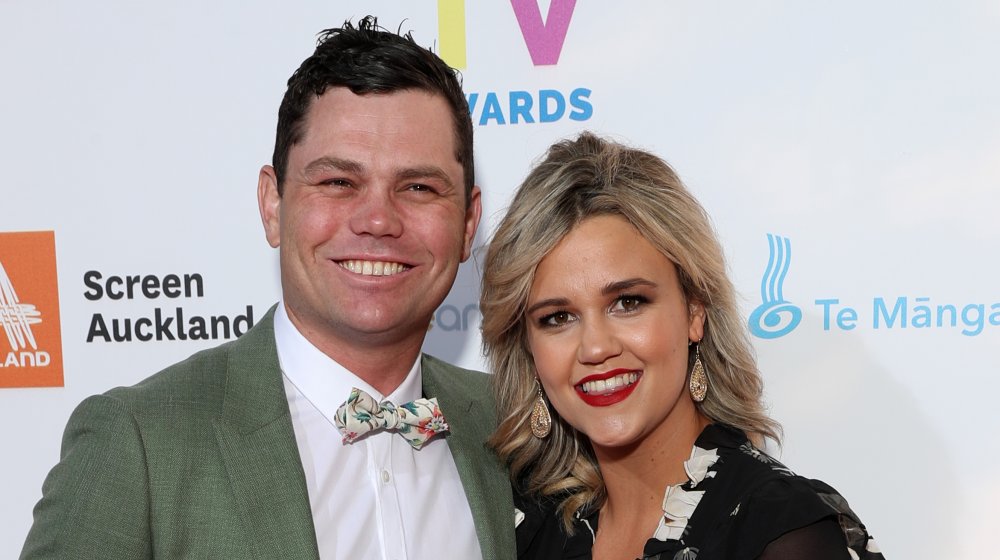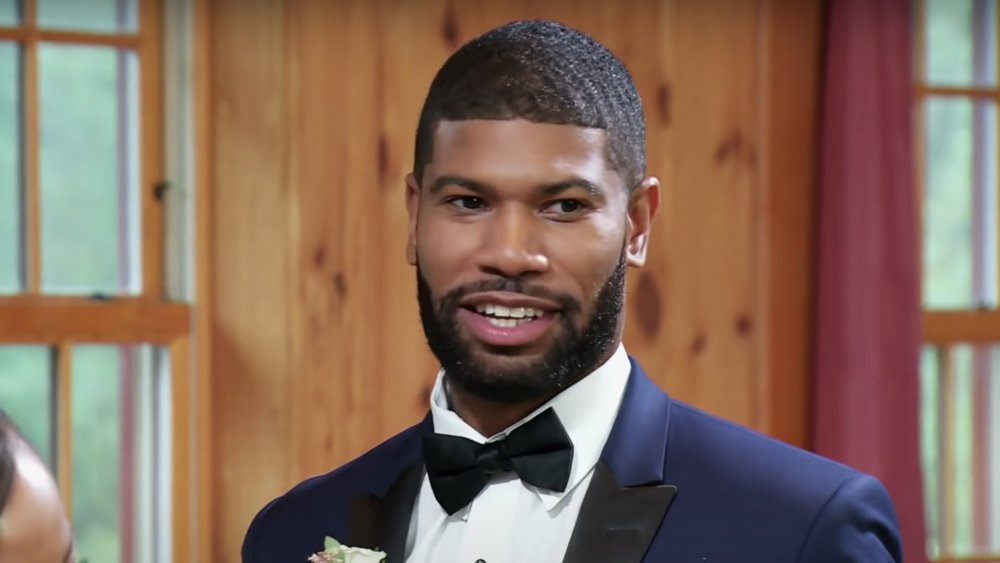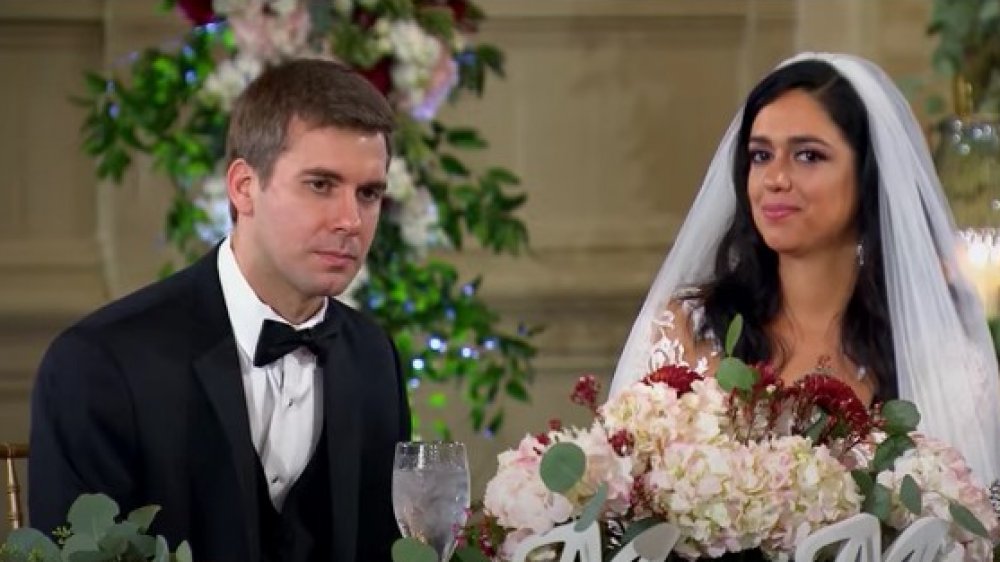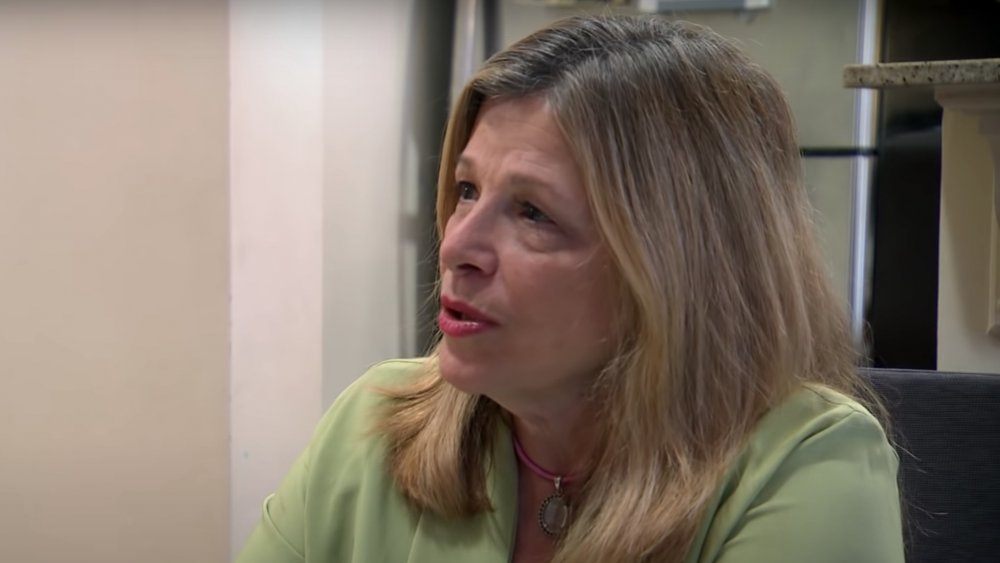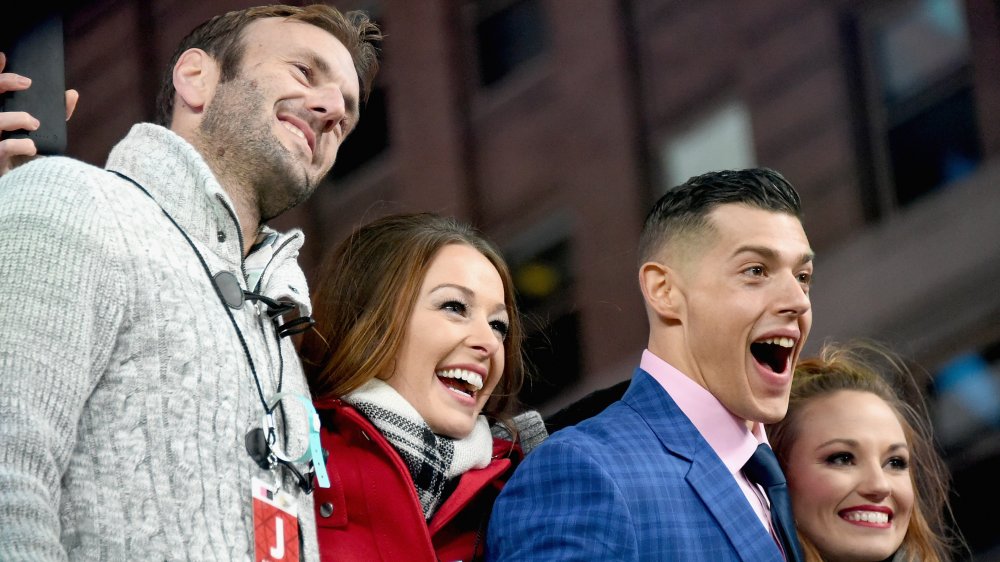Strict Rules The Married At First Sight Couples Have To Follow
Married at First Sight is a hit reality show sensation that was an unexpected success, first airing in the U.S. in 2014. The concept of finding willing participants to marry a complete stranger seemed like a long shot, but the show's panel of experts and commitment to portraying "real" people made the show a pop culture phenomenon that has lasted multiple seasons. The show is filmed all across the globe, from the U.S. to Australia, and is wildly popular, even if most of the couples don't end up staying together after the fateful decision day.
Although documenting a new life with a stranger is daunting enough on its own, the participants also have to abide by strict rules that the show puts in place. From the initial interview process to the curfew, these reality show stars don't have the same freedom typical newlywed couples enjoy. There's a lot most people don't know about Married at First Sight. Here are some of the strict rules Married at First Sight couples have to follow.
Married at First Sight couples must go through an intense interview process
People who sign up to get married to a complete stranger have to be prepared to go through a very lengthy interview process. While it is almost impossible to guarantee compatibility, the Married at First Sight experts do the best they can through an intense screening process. While fans of the show have seen the aftermath of the pairings, including divorces, fights, and infidelity, not many know about the great lengths the participants go to in order to marry someone they don't even know.
According to an interview a producer of the show did with People, Married at First Sight hopefuls have to fill out a questionnaire and a written evaluation that is only given to licensed therapists. Executive producer Chris Coelen explained the lengthy process, saying, "That take[s] hours and hours to complete." Along with that, the beginning interview and vetting process can take six months, with the final casting decisions taking up to four to six weeks.
A past participant on the UK version, Clark, opened up about the process to Cosmopolitan, saying, "It was a 500 question questionnaire that goes through your likes, your dislikes, all the intricate pieces of information about you."
Married at First Sight couples have to hide their social media accounts
The couples on Married at First Sight go through a once-in-a-lifetime experience after beating out thousands of other applicants. Many wish they could document everything and share moments with their friends and family during filming on Twitter or Instagram, but one of the strict rules all participants who appear on the show have to follow is a complete social media ban.
Clark from Season 2 of UK's Married at First Sight explained to Cosmopolitan that all social media accounts are shut down prior to filming, and the show strongly prohibits participants from getting to know or looking up fellow participants on the show. Clark explained, "You never meet anyone else in the process — during the science day you meet a couple of other people, but you never meet any of the other couples throughout the whole program." He went on to say that all social media is hidden to the point where no one can find anyone who is also participating in the program.
Married at First Sight participants can't have applied to certain reality shows in the past
Part of the appeal of Married at First Sight is that the participants are ordinary people going through an extraordinary experience in front of millions of viewers. The success of the show could be due to the unfamiliar faces who come off as relatable in one way or another as they navigate the territory of a new marriage to a complete stranger. In order to keep this appeal, it's no wonder why the show has a rule that allows the experts to weed out participants who have appeared on, or have applied to be on, reality shows that don't align with "finding love."
According to psychologist Sabina Read, who is an expert on the UK version of the show, they often keep a close eye on participants who have been around the block a time or two when it comes to television appearances. She explained to News.com.au, "If their profile said they had applied for Big Brother or MasterChef, we put them to the side." But apparently, it's no issue if the participant has appeared on relationship-focused shows like The Bachelor, as was the case for Season 1's Jamie Otis, who has been involved in some of Married at First Sight's most uncomfortable kisses. Otis previously appeared on Season 16 of The Bachelor before signing up to marry a stranger.
Married at First Sight participants must give up their phones
Married at First Sight functions at its core like a social experiment that happens to be aimed at giving people the chance to find love in an unusual way. But experiments can be hard to contain if the participants are not abiding by the rules, which are set in place by the experts and producers in order to ensure the best results possible.
Because of this, people on the show have to give up their phones throughout the duration of the filming schedule each day. At the end of the day, the participants will be given their phones back. According to the Daily Mail Australia's inside source, this was a new rule set in place after participants on the show in previous seasons were caught having an affair during filming. The rule is also there in order to protect content from the filming process being shared with the public before the show has wrapped. The source explained, "This decision is also to prevent anybody capturing any unauthorized content on set and leading to potential leaks to the media."
Married at First Sight Couples must go through a thorough background check
The vetting process of Married at First Sight is intense. The experts each season have to assess and pair off individuals whom they think would make it in a successful marriage. While they often say they offer no guarantees, the experts and producers on the show want to make sure not just anyone is going to be living in a home with a stranger while cameras document their every move.
Each participant, in addition to a lengthy questionnaire and interviews, also has to go through a very extensive background check. In an interview with the New York Post, a psychologist for the show, Jessica Griffin, explained that each applicant has to be evaluated for a myriad of "red flags." These include substance abuse and criminal charges, which would presumably disqualify someone from being selected. The experts are also looking for individuals who may show less obvious signs of not being ready to get married. Griffin said, "If you're not willing to work on your relationship, or be flexible, or say 'I'm sorry,' that's a red flag."
Couples must be filmed for ten hours a day for eight weeks
Married at First Sight participants go through many hoops to be able to marry someone whom they hope will be their life partner. While the experts try to match the participants through a thorough evaluation, there's no telling how people will act once they are put in front of a camera.
Couples are filmed ten hours a day for eight weeks, and that amount of time in front of a camera can cause the participants to behave differently than they would when the camera is off. According to one of the expert panelists for the show, Dr. Pepper Schwartz, the process of finding people who want to be filmed can be difficult. Schwartz told E! News, "We have had some problems in this where people desperately want a husband or wife but they don't want to be documented."
The entire process can be daunting for the couples, and according to executive producer Chris Coelen, it can be daunting for the experts as well. "You don't know how somebody is going to react, you make an educated guess," Coelen said.
Married at First Sight couples have to sign a prenup before the wedding
Couples on Married at First Sight have to take a huge risk when signing up for the show. In addition to marrying someone they just met, they will also have to live with that person for six weeks while every moment gets documented for millions to see. With this kind of arrangement, it's no surprise that the show ensures that the couples who don't have a successful outcome at the end of the filming period are protected along the way.
In an interview with TheWrap, executive producer for the show Chris Coelen explained the prenuptial agreement all couples have to sign prior to getting hitched. "It's a very short, brief prenup. It basically says what they walk in to [the marriage with], is what they walk out of the marriage with," he said. The agreement serves to make sure all participants are taken care of. Coelen shared, "If for some reason it does not work out, at least you are protected with this basic form. You are not going to get yourself into any legal trouble."
Married at First Sight stars have to pay for some of their divorce fees
The concept of Married at First Sight doesn't come without some obvious pitfalls. The most common one being that most couples don't remain married. While there are some success stories, like Season 1's Jamie Otis and Doug Hehner, the majority of participants decide to split when it comes to Decision Day, a time responsible for many of the most uncomfortable moments on Married at First Sight.
The experts and producers have this in mind when developing the show, but unfortunately, the costs of getting a divorce are not completely covered by production. Executive producer Chris Coelen explained the show does not set aside money to help couples with their divorces, but they will help with a small amount to cover part of the costs. This includes lawyers' fees, but there's a catch. Coelen explained to TheWrap, "We will contribute within a certain period of time if they get divorced. We will help them cover the costs of an attorney if they choose to do that. I don't know what the amount is. It's nominal." So, if the couple waits to get a divorce until after that period is up, all divorce costs are up to them.
Married at First Sight couples can't be on reality shows after filming ends
Married at First Sight has an image to maintain, and part of that image is ensuring participants from the show don't go on to piggyback off of the success of the show in order to launch their careers on other television programs. In an attempt to keep the couples as "normal" as possible, the show puts in a strict rule in the contracts of all of their participants.
The show bans current participants from using the show as a platform to become pseudo-celebrities like many who appear on reality TV usually do. This could also be because experts want to discourage fame-hungry future participants from applying to be on the show. An inside source obtained by the Daily Mail revealed the strict rules the show has for its stars, saying, "They'll be unable to do anything for a minimum of 12 months." The reason for this, the source explained, is "to try and keep some integrity around the show." The insider said, "This prevention is enforced to try and encourage the participants to return to their day jobs once the show is done."
Married at First Sight couples have to live off an allowance
Those who are thinking of signing up for Married at First Sight for the money involved might want to find a different reality show to star on. The couples on the show are not paid for their long filming days. Instead, the participants on the show receive a stipend that is much smaller than most would probably expect.
According to former Australia's Married at First Sight star Nasser Sultan, he and his wife received an allowance from producers. Sultan revealed the details to Now to Love, saying, "You get $150 for the day, that's it." Participants are expected to live off of the allowance because they are also prohibited from working their regular full-time jobs during the filming process. Sultan also revealed that this stipulation is a part of the contract where it explains that the show's stars will be paid "per diem" or a daily allowance rather than actually being paid for their time documenting their lives after marrying a stranger.
Married at First Sight stars have to pay their own rent and groceries
Married at First Sight is a reality TV sensation with versions of the show being made all over the world. With a hit like that and low payment for participants, fans might expect that everyday expenses are covered. Unfortunately, because of the small daily allowance allotted for the show's stars, couples are expected to pay for groceries and other living expenses out of their own pockets.
Nasser Sultan from Australia's Married at First Sight revealed that on his season he and his wife shared their daily allotted allowance, which didn't go very far. Sultan told Now to Love, "But on top of that, you have to pay expenses — your living expenses with the woman that you marry." He went on to say in addition to being filmed 12 hours a day, couples still have to pay rent and all other expenses. "None of our groceries were covered," Sultan stated. He went on to explain that couples were instructed to shop at the same grocery store, which happened to be an expensive one, and it was all out of their own money.
Married at First Sight couples have to take ten weeks off of work
Couples on Married at First Sight must remain married for six weeks, but the entire process is actually more than that. Participants are expected to stop their everyday lives in order to pursue this social experiment that may or may not work out in their favor. While they are already taking a big risk marrying someone they don't know, they also have to take time off of work, according to the show's rules.
Australia's Daily Mail revealed that couples on Married at First Sight in the UK are instructed to take ten weeks off of work in order to participate on the show. Additionally, because of the show's strict rules not allowing participants to appear on other television shows after their season airs, the show pushes for the couples to return to their day jobs once filming is over. This adds to the risk that participants have to take because their "normal" day jobs might not take them back after a long hiatus.
Married at First Sight participants have to be coachable
Experts on Married at First Sight look for specific personality traits when casting for the next season. By doing the extensive interview process and psychological evaluations, the experts search for applicants who show characteristics that will have a better compatibility rate when pairing off the couples.
Dr. Pepper Schwartz revealed to E! News that she specifically looks for a "coachable" personality, saying she looks for "somebody who's willing to take advice." She went on to say that the participants she is most interested in working with have an "earnest" and "kind" energy. While those are traits most people would want in a partner, Schwartz went on to explain it isn't the only thing that will make someone a good match for the show: "You don't have to be honest and kind and you still might have a terrific match, we really want people who are authentic about their reasons for doing this and are full of heart in terms of the rationale for doing it."
Married at First Sight stars must abide by a curfew
While most married couples are able to enjoy a sense of freedom after saying "I do," newlyweds on Married at First Sight have to abide by production's set of rules during the experiment. Participants are restricted from fully living their normal lives during filming because the show needs to control the process and produce the best results.
Stars of the UK version of the show were mandated to be back inside their homes at a certain time because of a strict curfew put in place by the production. Melissa Lucarelli from Season 6 of the show revealed on the Reality TV & Me podcast, "You were filmed about 16 hours a day, it was crazy. If you weren't filming then you had to be in your apartment with your husband or wife by 8 o'clock." She went on to explain that the show even went as far as placing "hall monitors" to ensure no participants were sneaking out after curfew.
